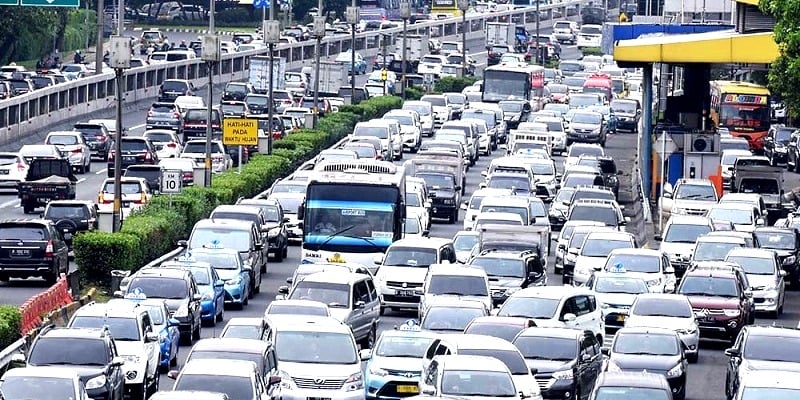Nearly empty thoroughfares in Jakarta in the early months of the pandemic were a sight to behold, and the relatively pure air in a city that normally ranks abysmally on pollution scales was a welcome bonus.
We had come to see jammed roads as a necessary evil for an emerging economy, but the COVID-19 curbs proved overwise.
We learned that traffic could be vastly reduced while life went on because much of the work to keep the wheels of society spinning could be done from home.
What a revelation that was! After all, it meant we could enjoy the newfound quiet even in the post-pandemic future and that we would get to keep all that time saved on commuting.
Except, we didn’t. Most of us are back at the office, and the traffic, as almost any Jakartan will attest, is just as bad as before the pandemic, if not worse.
All the effort employers and employees put into reconfiguring office tasks, meetings and even conferences for remote work have gone to waste.
We now have the procedures in place, along with all the IT and telecommunications infrastructure, to work from home (WFH) or work from anywhere (WFA), but we are no longer taking advantage of them.
A survey published last month by the United States’ National Bureau of Economic Research (NBER) found that US remote workers saved an average of 55 minutes a day compared with their commuting colleagues.
Across the 27 countries included in the study, WFH is associated with an average of 72 minutes saved.
Indonesia was not included, but our fellow emerging economies of China, India and Brazil all came in above that average figure.
Employers should read the study, especially the part that notes that “40 percent [of the time saved] goes to extra work”, more than the shares going to leisure (34 percent) and caregiving activities (11 percent).

Hours upon hours saved on the road, therefore, translate not just to more quality time for families and friends but, most of all, into more time dedicated to work.
Numerous studies conducted even before the pandemic have pointed to the immense price societies pay in the form of time and money for long commutes.
Some have found that more remote work means less absenteeism because workers feel less exhausted and stressed.
Decentralized work has helped many a firm cut costs by shedding expensive office space or reducing compensation for employees to cover transportation, food and childcare.
Yet companies in Jakarta and other Indonesian cities have been sending out memos calling on everyone to return to the office. Have they carefully weighed the costs and benefits of returning to the old ways of doing things?
In any case, their decisions have resulted in the renewed problem we see on the roads during rush hours.
Perhaps it is time for the government to provide a little nudge to get more employers to think outside the box.
Tax incentives could be the carrot, while surcharges for road usage or parking would be the stick. But as a first step, why not a simple appeal to employers to consider the pros and cons of remote work?
There is plenty of room for compromise between WFH and working from the office. For instance, employees could be required to show up only by 11 a.m., thereby avoiding the morning rush hour, or they could be allowed to leave before the evening rush hour.
Another hybrid solution would be to have workers come in on certain days and stay home on others, thus creating opportunities for face-to-face staff meetings.
We have explored many options in the last two-and-a-half years, but what we have learned could go to waste if companies opt for business as usual.
ADVERTISEMENT
ADVERTISEMENT








































